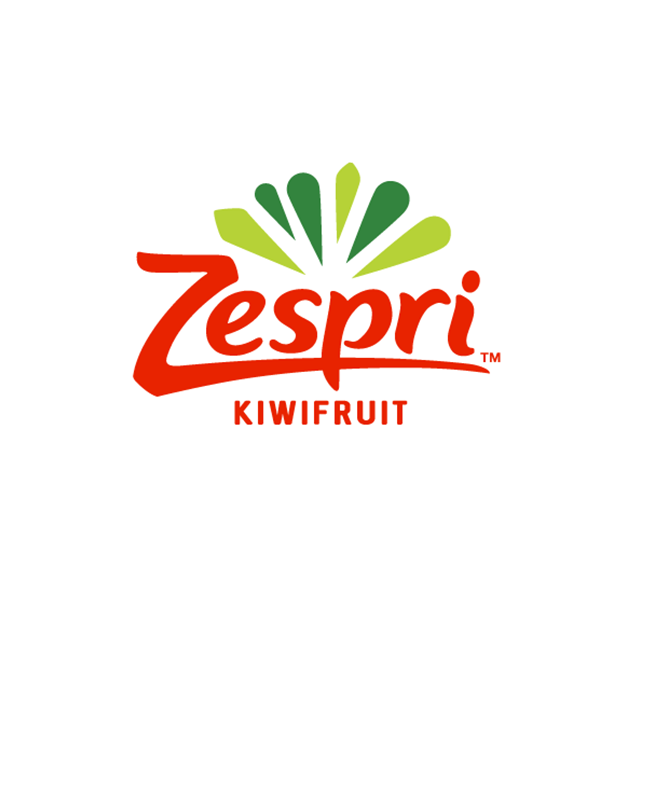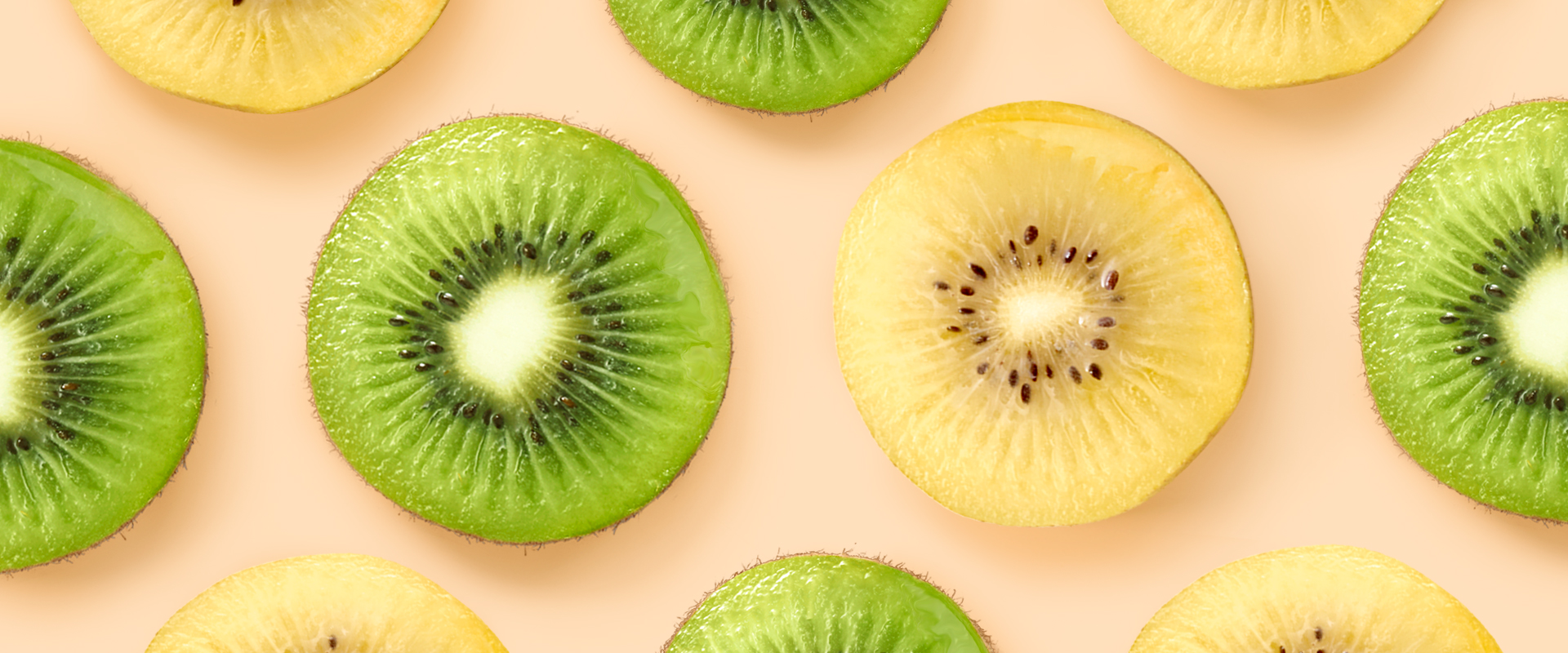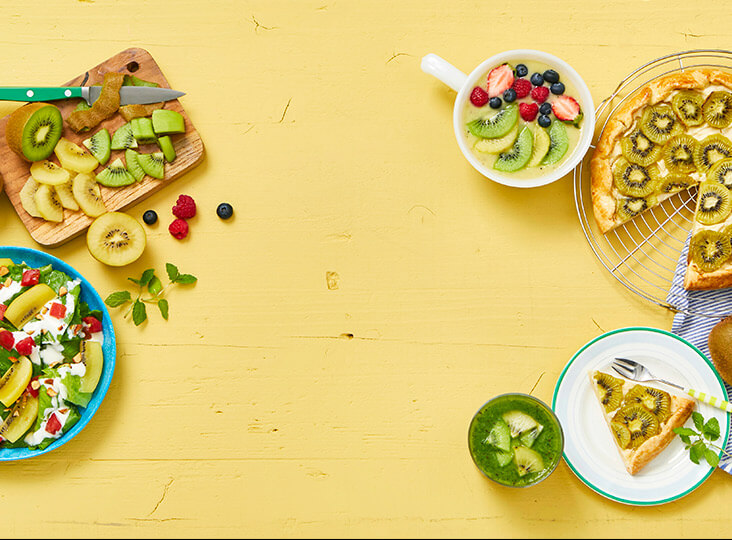4 top tips to manage your mood with food
-
Zespri SunGold kiwifruit
-
Zespri Green kiwifruit
-
Digestive Health
What’s your favourite food to eat when you’ve had one of those ‘less than perfect’ days? For some, it’s a square of dark chocolate or a glass of red wine. For others, it’s a comforting bowl of homemade soup or a mug of warm tea. Whatever you choose, we all know the instant effect that certain foods can have on our mood and sense of wellbeing. But did you know that your diet can also affect how you think and feel in the first place? Apart from giving you the energy to meet the day’s challenges with a positive outlook, the right nutrition may improve your frame of mind. Keep reading to find out our 4 key tips for managing your mood with food1…
1. Keep your sugar levels steady

Ever skipped lunch and fallen into an afternoon slump? If so, you’ll understand the connection between irregular eating patterns and irritability. When our blood-sugar levels fluctuate, it can quickly leave us feeling tired and fed-up. For this reason, it’s a good idea to choose ingredients which have a low GI (glycaemic index), since these foods are absorbed and digested more slowly by the body. With a glycaemic index of 39, Zespri Green kiwifruit are included in this category2-3.
2. Stay hydrated (and decaffeinated)

When it comes to mental health and wellbeing, what we drink is just as important as what we eat. Nutritionists recommend an average of 6-8 glasses of fluid per day, without which it may become difficult to think clearly or concentrate on tasks. Keeping a full water bottle by your desk is one of the easiest ways to achieve this goal, but you can also stay hydrated by adding more water-filled fruits and vegetables to your diet. With its high water content4-5, Zespri Green kiwifruit is a tasty and nutritious way to stay happy and hydrated. You can also top up with tea and coffee, but try not to overdo the caffeine. Though it may perk you up initially, as a stimulant it can leave you feeling anxious or unable to sleep.
3. Look for the rainbow

Few things can raise the spirits more than an arch of colours in the sky. Unless of course, they are on your plate! ‘Eating the rainbow’ means making sure you include a variety of colourful fruits and vegetables in your diet, each of which contains certain minerals and vitamins that keep your body healthy and your mind happy. Recent studies have found that increased fruit and vegetable consumption can enhance psychological well-being and decrease depression6. Zespri Green kiwifruit is a particularly good choice, since it contains micronutrients which contribute to a normal psychological function, such as vitamin C and magnesium7.
With a nutritional adequacy score of 11.4, Zespri Green kiwifruit is one of the most nutritious options amongst commonly eaten fruits8. Zespri Green kiwifruit contains more vitamin C than an orange, with 85.1 mg per 100g. That means that eating just one Zespri kiwifruit a day can help maintain your required vitamin C levels4-5.
Apart from setting you up for the physical demands of the day, a healthy breakfast can actually help improve your mood from morning till night. It’s also the perfect moment to take care of your gut. Mental health and digestive health can be closely connected (just think of how your stomach reacts when you are stressed or anxious), so a high fibre breakfast is a wise choice. This recipe for kiwifruit and carrot cake spiced oatmeal is as comforting as it is delicious: we challenge you to be in a bad mood after a bowlful!
References
- Mind (2017). Mood and Food. Available online: https://www.mind.org.uk/media/34727115/food-and-mood-2017-pdf-version.pdf
- Monro JA. Kiwifruit, carbohydrate availability, and the glycemic response. Adv Food Nutr Res. 2013;68:257-71.
- Boland M, Moughan PJ. Advances in food and nutrition research. Nutritional benefits of kiwifruit. Waltham, MA: Elsevier Inc; 2013. https://www.elsevier.com/books/nutritional-benefits-of-kiwifruit/boland/978-0-12-394294-4
- New Zealand Ministry of Health. New Zealand FOODfiles 2014 Version 01. Available from: www.foodcomposition.co.nz/ (accessed 10 January 2017)
- USDA national nutrient database for standard reference (release 28) 2015. Available from:https://ndb.nal.usda.gov/ndb/(accessed 10 January 2017)
- Conner TS, Brookie KL, Carr AC, Mainvil LA, Vissers MCM (2017) Let them eat fruit! The effect of fruit and vegetable consumption on psychological well-being in young adults: A randomized controlled trial. PLoS ONE 12(2): e0171206. doi:10.1371/journal.pone.0171206
- European Comission. EU Register on nutrition and health claims made on foods. http://ec.europa.eu/nuhclaims
- Darmon N, Darmon M, Maillot M, Drewnowski A. A nutrient density standard for vegetables and fruits: nutrients per calorie and nutrients per unit cost. J Am Diet Assoc. 2005;105:1881-7.







